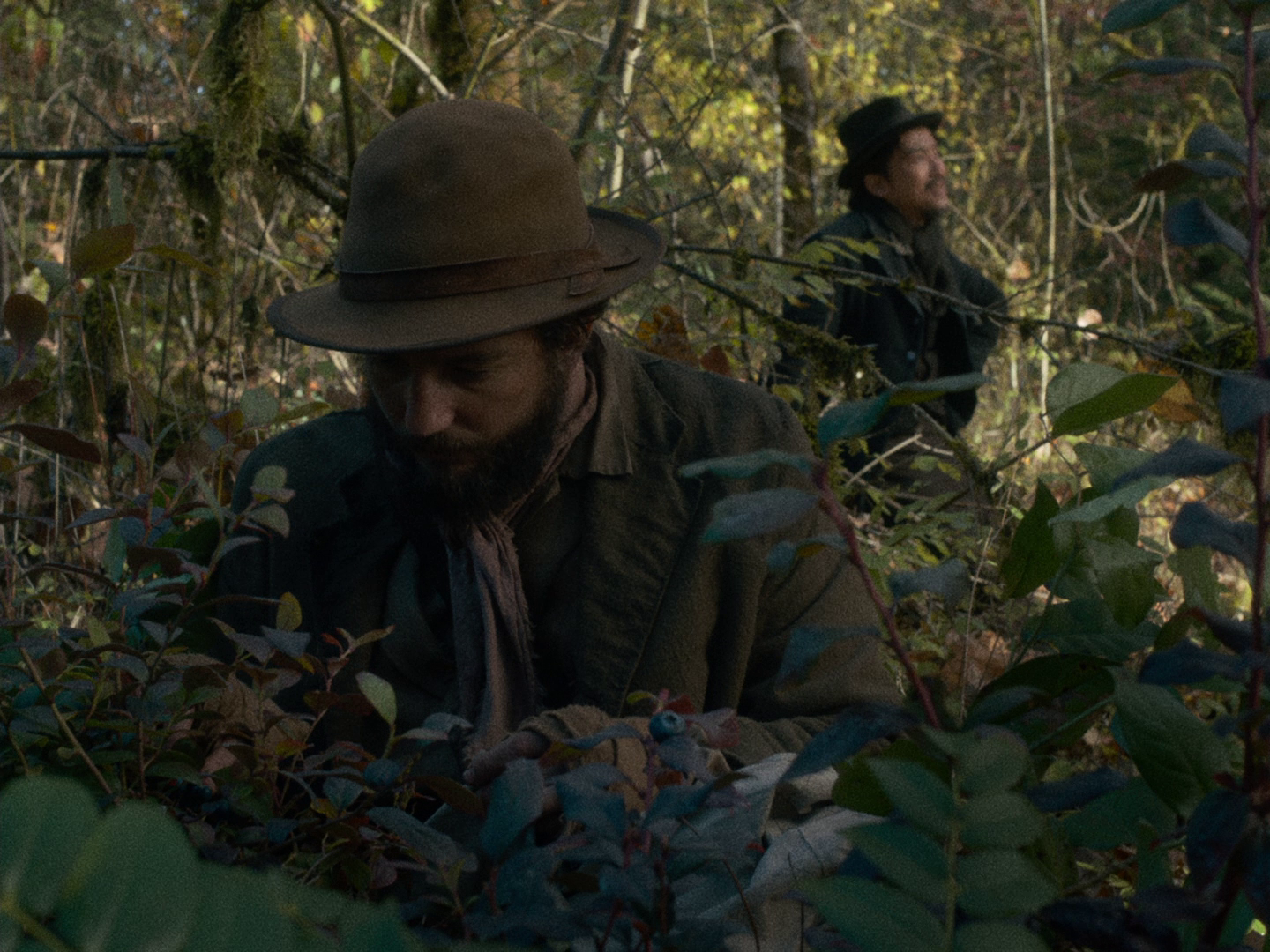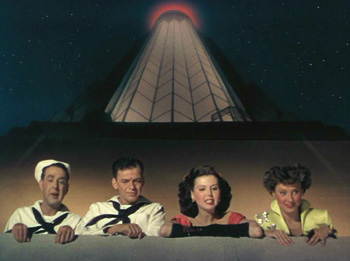Los Cronocrímenes
**/****
starring Karra Elejalde, Candela Fernández, Bárbara Goenaga, Nacho Vigalondo
written and directed by Nacho Vigalondo
WENDY AND LUCY
**/****
starring Michelle Williams, Wally Dalton, Will Patton, Larry Fessenden
screenplay by Jonathan Raymond & Kelly Reichardt
directed by Kelly Reichardt
by Walter Chaw Timecrimes (Los Cronocrímenes), Nacho Vigalondo's zero-budget exercise in kitchen-sink quantum metaphysics, doesn't fuck itself with an unearned sense of smug self-satisfaction like Shane Carruth's Primer, but it does prove to be more tantalizing than satisfying. All garnish, no calories; take time travel and turn it into a series of unfortunate events that, although it plays with matter/anti-matter lore, doesn't go much farther in developing either its philosophy or its narrative. The result isn't pomo expressionism, but rather this taste of something, these suggestions of something other, that don't amount to a hill of beans once the whole thing morphs into a breakneck thriller. It makes some sense, then, that the hero of the piece is a non-descript schlub of a man, soft, no shoulders, falling over the edge into middle-age–enough so that when he spies a naked woman in the hills behind his house through his binoculars, of course he doesn't look away (who would, right?), and of course he doesn't tell his wife.
The schlub's decision to sneak a closer look at this exhibitionist results in his being first stabbed by a pair of scissors (he's discovered supernaturally, it would seem, by a hooded man), then, after he takes refuge in an experimental machine housed in a laboratory at the top of a hill, sent back in time a few hours to just before the events of the afternoon. Squint a little and the picture resolves in this way into the deconstruction of a mid-life libido as our hero, trapped in matrimony, chases the squirrel turning over in his long-neglected groin and reaps the whirlwind of that decision–explaining how, in the end, he ends where he begins: in a New American Gothic tableau, with Archie and Edith in twin lawn chairs as something dressed like his wife is thrown off the roof. It's really not that complicated.
What it is is a demonstration of what's possible when an idea is explored to the extent of its originator's ability. That's a good thing. Timecrimes is not at all pretentious. The expository moment comes as it must with the mad scientist talking about the space-time continuum (remember Doc Brown's blackboard jumble?), scrawling a diagram on the back of a sign that he inexplicably hangs on a wall as a "hey, remember that" moment from earlier in the picture, though it passes without becoming a nuisance. The picture knows its limitations and doesn't rail against them, coming and going with a concentrated brevity that saves its seams from showing overmuch. Ratchet the pace enough and there isn't time to test the seaworthiness of the premise and its attendant complications–or so the theory goes.
Because the pleasures of the film are entirely dependant on its cleverness and agility, the result is this feeling of frustration at not getting to think one thing through to its end before the next thing begins. It's not fun, and it's not fun because it's also not exciting or tense; and because all you're left with is the role of logician/sleuth, it's ultimately a pretty flaccid experience all around. There simply aren't enough leads to formulate a pleasing hypothesis. I like the vague intimation that what we're watching is just one iteration of an endless cycle that's been going on for a while, but does the ending suggest that we're watching the drama at its end instead of its middle? Give Timecrimes this much: until it abruptly quits, you want it to give you time to get high off it.
Getting high isn't what's on Kelly Reichardt's mind as she follows up her sometimes diverting, once-in-a-while revelatory Old Joy with the relentlessly dour, savagely downbeat Wendy and Lucy. Wendy (Michelle Williams) is "passing through" a little nowhere town on her way to Alaska when a minor disaster results in a series of those unfortunate events again. Arrested for shoplifting a can of dog food for canine companion Lucy, Wendy returns to find her pooch missing and embarks on a quest to get her car fixed, her dog back, and someone to care about her. Williams has this little-girl-lost aura for me–a quality Reichardt milks by giving her a pageboy haircut (she resembles a grown-up Scout Finch)–and Wendy's plight is affecting only because Williams is always affecting. Whether she's collecting cans by the side of the road, deciding to trust an old security guard, or carefully lettering a "lost dog" poster, the instinct is to draw her to your breast even though Reichardt–shooting her through security gates, literal jail cell bars, chain-link fences, and dog pound grills–is so shamelessly manipulative about it.
Wendy and Lucy is grim to the point of tedium for extended stretches. A late-film cameo by Larry Fessenden (his company, Glass Eye Pix, produced), however, brings to it an element of the anti-Williams in a character so forceful in its unpleasantness ("I don't like this place," he mutters as a train passes on an embankment) that the picture gains real momentum and tension for the duration of his visit. Combined, the two form an ego/shadow duality that of course has to merge for Wendy to find individuation in the film's gunmetal Wizard of Oz Kansas of rural America–though if Reichardt is trying to make a picture about how we tend to overlook or be unkind to the homeless and the broken-down, it's not anything that feels terribly compelling. Maybe it's better to consider Wendy and Lucy a portrait of the kind of malaise that has infected, we like to think, the kids these days. Or a distaff Into the Wild, perhaps, without ambition or philosophy, within or without, that at the end and ironically only throws a light on the malaise (see also: Jeff Nichols's Shotgun Stories) infecting young independent filmmakers these days. Originally published: December 12, 2008.






